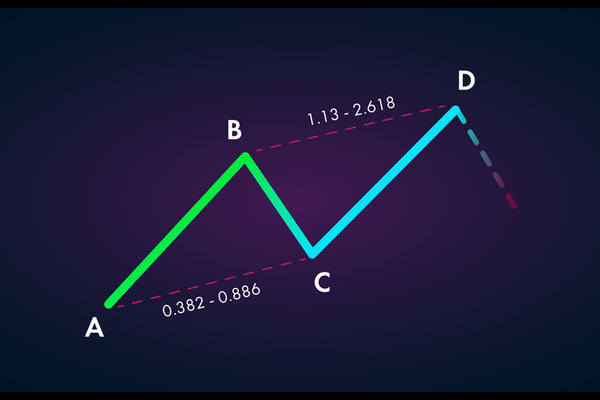What is Fundamental Analysis
Fundamental analysis, also known as basic analysis, is based on the intrinsic value of Securities, focusing on the analysis of various factors affecting the price and trend of securities, so as to determine which securities to buy and when to buy.

The assumption premise of the basic analysis is that the price of securities is determined by its intrinsic value, and the price changes frequently due to the influence of political, economic, psychological and many other factors. It is difficult to be completely consistent with the value, but it always fluctuates around the value. Rational investors should make investment decisions based on the relationship between securities prices and values.
Basic analysis is mainly applicable to securities price forecasts with relatively long cycles, relatively mature securities markets, and areas with low prediction accuracy requirements.
Fundamental analysis is a method of evaluating securities by examining relevant economic, financial and other qualitative and quantitative factors to assess their intrinsic value. Fundamental analysts study any factors that may affect the value of securities, including macroeconomic factors (such as economic and industrial conditions) and microeconomics factors (such as financial conditions and corporate management). The ultimate goal of fundamental analysis is to generate a quantitative value that investors can compare with the current price of securities, thereby indicating whether the securities are undervalued or overvalued.
Fundamental analysis determines the health and performance of the underlying company by examining key numbers and economic indicators. The purpose is to determine whether the company and industry are strong. Investors make long-term purchases of strong companies in the expectation of an increase in stock value, and short sell stocks of weaker companies. This security analysis method is considered the opposite of technical analysis, which predicts price direction by analyzing historical market data such as prices and quantities.
Basic knowledge of fundamental analysis
Basic analysis uses real public data as the value of securities in the evaluation. Although most analysts use fundamental analysis to value stocks, this valuation method can be applied to almost any type of securities. For example, investors can conduct fundamental analysis of the value of bonds by examining economic factors such as interest rates and overall economic conditions. You can also view information about bond issuers, such as potential changes in credit ratings.
Fundamental analysis uses revenue, returns, future growth, return on equity, profit margins, and other data to determine a company's fundamental value and future growth potential. In terms of stocks, fundamental analysis focuses on the financial statements of the evaluated company. The most famous and successful fundamental analyst among them is Warren Buffett, who is famous for successfully using fundamental analysis to select securities.
Elements that affect fundamental analysis
1. Economic factors
The business cycle, the country's financial situation, financial environment, balance of payments, changes in the economic status of the industry, and the adjustment of the national exchange rate will all affect the ups and downs of stock prices.
Business cycle is the economic fluctuation caused by the internal contradiction of economic operation, and it is an objective law that is not transferred by people's will. The stock market is directly influenced by economic conditions and will inevitably exhibit a cyclical fluctuation. During an economic recession, the stock market will inevitably weaken and decline accordingly; When the economy recovers and prospers, stock prices will also rise or show a strong upward trend. Based on past experience, the stock market is often a barometer of economic conditions.
When there is significant inflation in the country's financial situation, stock prices will fall, while when fiscal expenditures increase, stock prices will rise.
The financial environment is relaxed, there is sufficient market funds, interest rates are falling, and the reserve requirement ratio is lowered. Many hot money will shift from banks to the stock market, and stock prices often show an upward trend; The country tightens monetary policy, market funds are scarce, interest rates are raised, and stock prices usually fall.
A surplus in international payments stimulates domestic economic growth, which will drive up stock prices; When there is a huge deficit, it will lead to a depreciation of the domestic currency, and stock prices will generally fall.
2. Political factors
The adjustment or change of national policies, the overlapping of leaders, frequent international political turmoil, and the important role of state power transfer on the international stage, the occurrence of wars between countries, labor disputes and even strikes in certain countries often lead to stock price fluctuations.
3. Company's own factors
The value of a stock itself is the most fundamental factor determining its stock price, which mainly depends on the operating performance, credit level, and the accompanying dividend distribution status, development prospects, and expected stock returns of the issuing company.
4. Industry factors
The changes in the position of the industry in the national economy, the development prospects and potential of the industry, the impact of emerging industries, as well as the position of listed companies in the industry, business performance, operating conditions, changes in fund portfolios, and changes in leadership personnel will all affect the prices of related stocks.
5. Market factors
The movements of investors, the intentions and manipulation of large investors, cooperation or mutual shareholding between companies, increase or decrease in credit and futures trading, arbitrage behavior of speculators, and the company's capital increase methods and amounts may all have a significant impact on the stock price.
6. Psychological factors
Investors may experience psychological changes after being influenced by various factors, which often lead to emotional fluctuations, misjudgment, and blind pursuit of large investors, crazy selling and buying behavior. This is often an important factor that causes stock prices to plummet and soar.
Advantages and disadvantages of fundamental analysis
1. The main advantage of basic analysis is that it can comprehensively grasp the basic trend of securities prices, and its application is relatively simple.
2. The main drawback of basic analysis is that the prediction time span is relatively long, and its guidance for short-term investors is relatively weak; Meanwhile, the accuracy of prediction is relatively low.
【 EBC Platform Risk Reminder and Disclaimer 】: There are risks in the market, and investment needs to be cautious. This article does not constitute investment advice.







